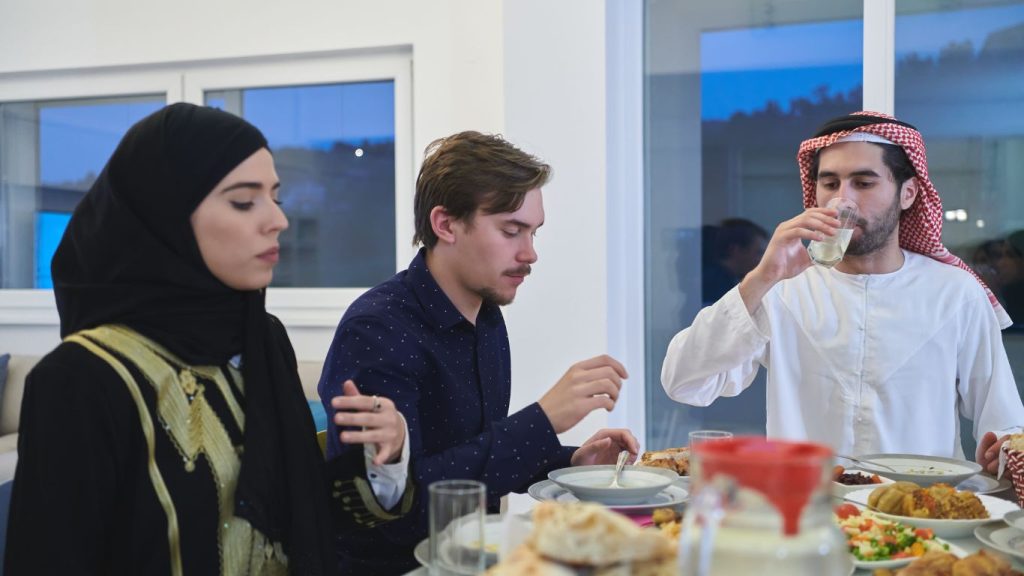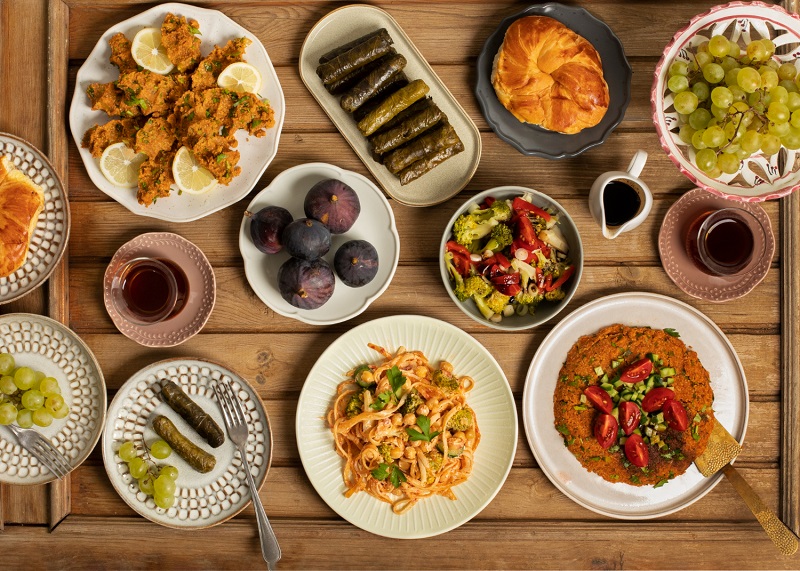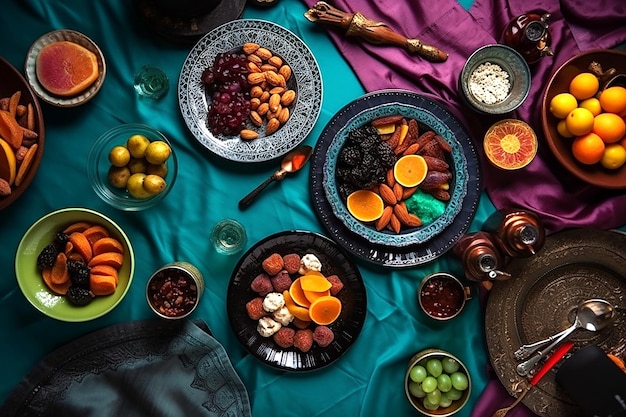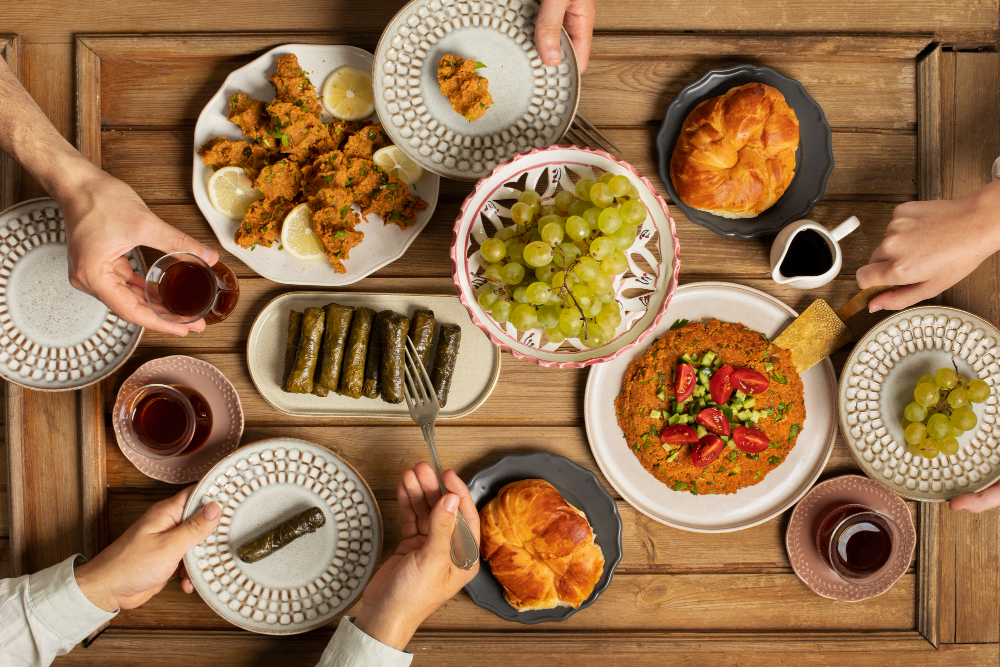Ramadan is a sacred month for Muslims, observed with fasting, prayer, and introspection. However, individuals with eating disorders may face unique challenges during this period due to the religious fasting practices.
The intersection of religious fasting practices and the complexities of eating disorders require careful consideration and management strategies. To help individuals manage eating disorders during Ramadan, it is important to understand the nuanced dynamics involved and provide necessary support. This article aims to offer insights and practical tips on how to navigate Ramadan with mindfulness and self-care, while effectively managing eating disorders.
Hunger is Not a Virtue and Eating is not a Sin
Ramadan, the ninth month of the Islamic lunar calendar, is a time of spiritual reflection, self-improvement, and heightened devotion and worship for Muslims worldwide. Central to Ramadan observance is fasting from dawn until sunset, abstaining from food, drink, smoking, and marital relations. While fasting is an integral part of Islamic practice during Ramadan, it is essential to recognize that hunger is not a virtue, and eating is not a sin. The focus of fasting should be on spiritual growth, empathy for the less fortunate, and strengthening self-discipline and control over one’s desires.
- Ramadan is the ninth month of the Islamic lunar calendar.
- It is a time for Muslims to reflect and improve spiritually.
- Fasting from dawn until sunset is central to Ramadan observance.
- Fasting is not about hunger being a virtue or eating being a sin.
- The focus of fasting is on spiritual growth, empathy, and self-discipline.
Have you ever judged your worth by the food you love?
In many cultures, including within the Muslim community, food plays a significant role in social gatherings, celebrations, and family traditions. However, it is essential to remember that one’s worth is not determined by the food they consume.
During Ramadan, individuals with eating disorders may struggle with feelings of guilt, shame, and inadequacy related to their relationship with food. It is crucial to seek support from mental health professionals and to remember that self-worth is not tied to food choices.
To Overshoot or Not to Overshoot
One common concern for individuals with eating disorders during Ramadan is the fear of overeating or binge eating after breaking their fast. This fear may lead to anxiety and distress, impacting their ability to enjoy the spiritual and communal aspects of Ramadan. It is essential to approach food with moderation and mindfulness, focusing on nourishing the body and honoring the spiritual significance of the meal.
Stop Listening to Music, It Will Change Your Life
During Ramadan, Muslims are encouraged to engage in acts of worship, reflection, and self-discipline, including refraining from listening to music. While music can be a source of comfort and entertainment, abstaining from it during Ramadan is seen as a way to enhance spiritual focus and mindfulness. Instead of music, individuals can use this time to engage in other forms of spiritual reflection and connection, such as reading the Quran or engaging in prayer.
Common side effects of not drinking
Fasting during Ramadan can have various effects on the body, including dehydration, fatigue, and headaches. It is essential to stay hydrated during non-fasting hours and to avoid excessive physical exertion. If you experience severe or persistent symptoms, it is essential to seek medical attention.
- Fasting during Ramadan can cause dehydration, fatigue, and headaches.
- Stay hydrated during non-fasting hours and avoid excessive physical exertion.
- Seek medical attention if you experience severe or persistent symptoms.
5 tips to deal if you have eating disorders in Ramadan
1. Setting boundaries
During the month of Ramadan, it is crucial to establish healthy eating habits and boundaries around food intake. This may involve avoiding situations that may trigger overeating or indulging in unhealthy foods, such as social gatherings that revolve around food.
It is recommended to create a meal plan that incorporates a variety of nutritious foods and promotes balanced eating habits to ensure optimal health during Ramadan.
2. Making time for suhoor
Suhoor is a crucial component of Ramadan observance, as it marks the pre-dawn meal before fasting commences. It is highly recommended to allocate sufficient time for suhoor and carefully select nutritious and filling foods to avoid overindulging later in the day.
By doing so, one can ensure that their body receives the energy and sustenance required to sustain the fast throughout the day.
3. Keeping a Ramadan reflection journal
Maintaining a Ramadan reflection journal can prove to be a helpful practice for individuals struggling with eating disorders. Such a journal can aid them in keeping track of their thoughts and emotions regarding food, fasting, and their body image. This approach can be quite beneficial in terms of promoting self-reflection and personal development.
4. Seeing Salah as an opportunity for mindfulness
During Ramadan, Salah, which is an Islamic practice of performing ritual prayers, can prove to be an excellent opportunity for individuals to delve into mindfulness and spiritual connection.
When individuals suffering from eating disorders take out time to concentrate on Salah and its meanings, it can help them remain grounded and centered. With Salah, people can explore a deep sense of calmness and peace, which can be a helpful tool in managing their eating disorder symptoms.
5. Having a prevention plan ready
Are you or someone you know planning to observe Ramadan while dealing with an eating disorder? It’s essential to have a prevention plan in place. You can start by devising strategies to manage triggers like stress or social pressure and seek help from mental health professionals or community resources. Remember, taking care of your mental and physical health is crucial, especially during this holy month.
| To Do | Not to Do |
|---|---|
| Eat a balanced diet | Overeat during iftar |
| Drink plenty of water | Consume excessive caffeine |
| Get enough sleep | Skip suhoor |
| Engage in light exercise | Overexert yourself |
| Practice mindfulness | Engage in negative self-talk |
| Seek social support | Isolate yourself |
| Follow a consistent routine | Stay up late |
| Monitor your mental health | Ignore signs of distress |
| Seek medical help if needed | Rely solely on willpower |
| Focus on spiritual growth | Compare yourself to others |
Observing Ramadan when you’re not fasting
If you are unable to fast during Ramadan due to health issues or any other reasons, you can still participate in the spiritual practices of this holy month. You can engage in acts of charity, attend religious gatherings, and seek alternative ways of worship and reflection to observe Ramadan. These practices help to connect with the divine and offer a sense of community and spiritual fulfillment.
Finding culturally competent care
People with eating disorders need to receive culturally sensitive care that takes into account their religious and cultural values. This is particularly important during Ramadan when fasting and other religious practices can affect their mental health. To ensure appropriate treatment, it’s recommended to look for mental health professionals who understand the relationship between eating disorders and Ramadan observance.
Getting back on track after Ramadan
After Ramadan ends, individuals with eating disorders need to focus on getting back on track with their recovery. This may include re-establishing healthy eating habits, seeking support from mental health professionals, and engaging in self-care practices that promote overall well-being.
By approaching Ramadan with mindfulness, self-compassion, and a focus on spiritual growth, individuals with eating disorders can navigate this holy month with grace and compassion toward themselves.
Resourses
- https://en.wikipedia.org/wiki/Ramadan
- https://ing.org/resources/for-all-groups/calendar-of-important-islamic-dates/ramadan-information-sheet/
- https://www.brandeis.edu/spiritual-life/resources/guide-to-observances/ramadan.html
- https://en.wikipedia.org/wiki/Ramadan_(calendar_month)
- https://islamic-relief.org/ramadan/
How do people manage fasting during Ramadan?
People manage fasting during Ramadan by waking up early for a pre-dawn meal (suhoor), hydrating well, consuming balanced meals during non-fasting hours, and breaking their fast (iftar) with dates and water followed by a balanced meal.
How can one fight hunger during Ramadan?
One can fight hunger during Ramadan by consuming slow-digesting foods, such as whole grains and proteins, staying hydrated, and avoiding excessive consumption of sugary or fried foods.
How can I support someone fasting for Ramadan?
You can support someone fasting for Ramadan by being understanding and respectful of their fasting schedule, helping with meal preparation, and joining them in fasting if you are able and willing.
How do you stay healthy during Ramadan fasting?
To stay healthy during Ramadan fasting, it is important to maintain a balanced diet, stay hydrated, avoid overeating during iftar, and engage in light physical activity.







